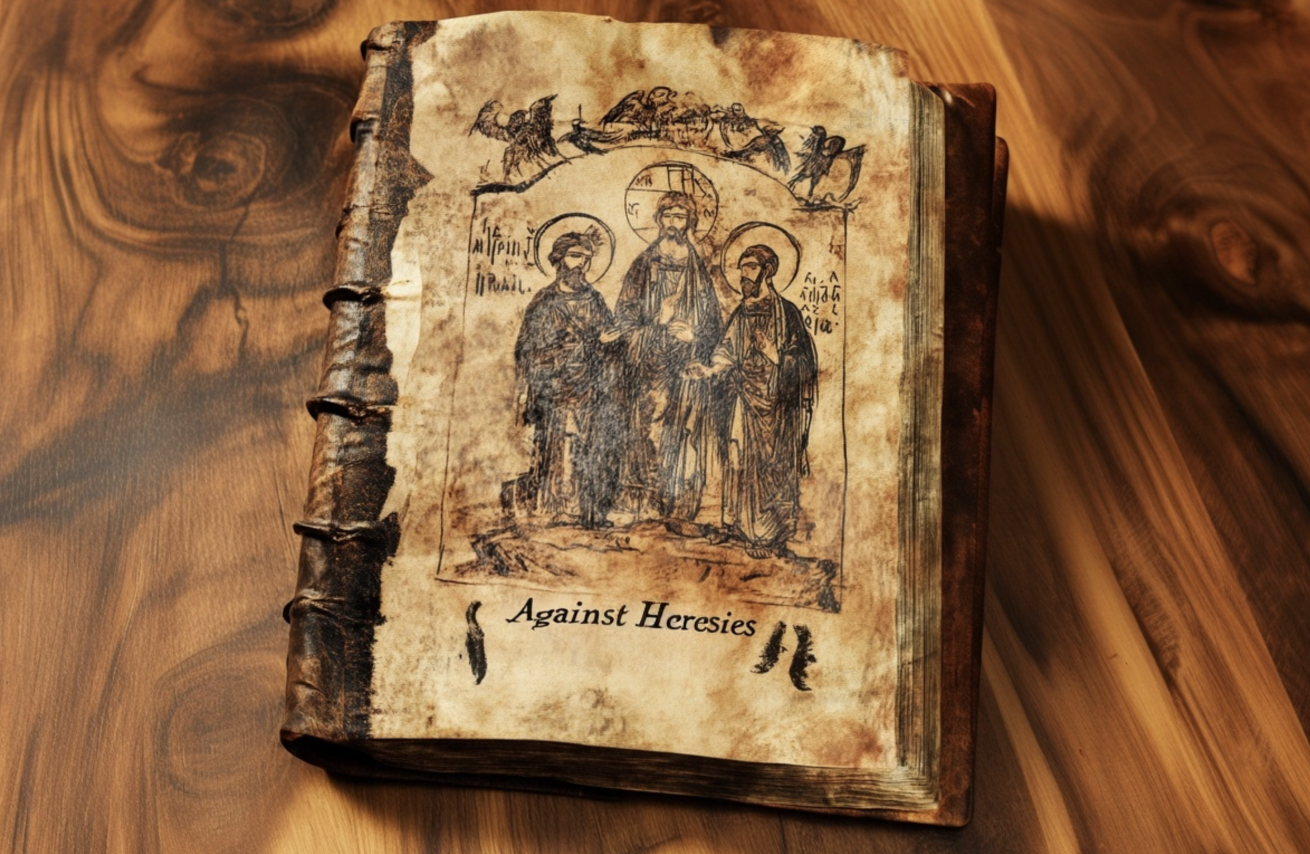
Saint Ambrose
Ambrose of Milan’s De Fide, written around 378 AD, defends orthodox Christian doctrine against Arian heresy. Addressed to Emperor Gratian, it affirms the Trinity—Father, Son, and Holy Spirit—as co-equal and co-eternal. Ambrose uses Scripture and reason to argue Christ’s full divinity, emphasizing faith’s role in salvation and the Church’s unity against false teachings.
Saint Ambrose
Written around 378–380 AD by St. Ambrose, De Fide (On the Faith) is a robust defense of Trinitarian orthodoxy against Arian heresy.
De Fide was composed by Ambrose, Bishop of Milan, at the request of Emperor Gratian, who sought a clear exposition of Christian doctrine amid theological disputes in the Western Roman Empire.
The work specifically targets Arianism, a widespread heresy denying the full divinity of Christ, asserting instead that He was a created being. Ambrose wrote to affirm the Nicene Creed’s teachings.
The treatise arose from a pressing need to uphold orthodox belief.
De Fide is structured in five books. The first two, written initially for Gratian, establish the divinity of Christ, while the later three expand the argument to address broader Trinitarian issues and refute Arian objections.
Ambrose employs Scripture extensively, weaving Old and New Testament passages with logical reasoning to demonstrate the co-equality and co-eternity of the Father and Son, often directly engaging Arian misinterpretations.
The work blends scriptural exegesis with theological clarity.
Ambrose argues that Christ’s divinity is eternal, not derived, countering Arian claims with texts like John 1:1 (“In the beginning was the Word”). He stresses the unity of the Trinity, rejecting any subordination within the Godhead.
He also defends the Holy Spirit’s divinity, completing the Trinitarian framework, and uses analogies—like the sun and its light—to illustrate how distinct persons share one divine substance.
De Fide reinforced the Church’s Trinitarian doctrine.
De Fide played a key role in the triumph of Nicene orthodoxy in the West, influencing figures like Augustine, whom Ambrose baptized. It solidified Milan’s theological prominence.
As a Doctor of the Church, Ambrose’s work endures as a model of pastoral theology, blending defense of faith with practical teaching, still studied for its clarity on the Trinity.
The treatise remains a pillar of Christian doctrine.
“The Son is not less than the Father, nor is the Father greater than the Son in divinity, for the substance of the Godhead is one.”
In the second week of an immersive thirteen-week series exploring Saint Augustine’s timeless masterpiece, Confessions. This episode delves into Book Two, where Augustine reflects on his sixteenth year—a pivotal moment marked by the stirrings of lust and a haunting act of youthful rebellion: the infamous pear tree theft.
In this special installment, we kick off a thirteen-week series exploring Saint Augustine’s timeless masterpiece, Confessions. Shannon teams up with friend and X Spaces host Sean for a chapter-by-chapter deep dive into this profound theological and autobiographical work. Recorded live on X every Wednesday at 6 PM Eastern, this series begins with an engaging discussion on Book 1, where Augustine reflects on his infancy, boyhood, and the restless search for truth that defines his early life.